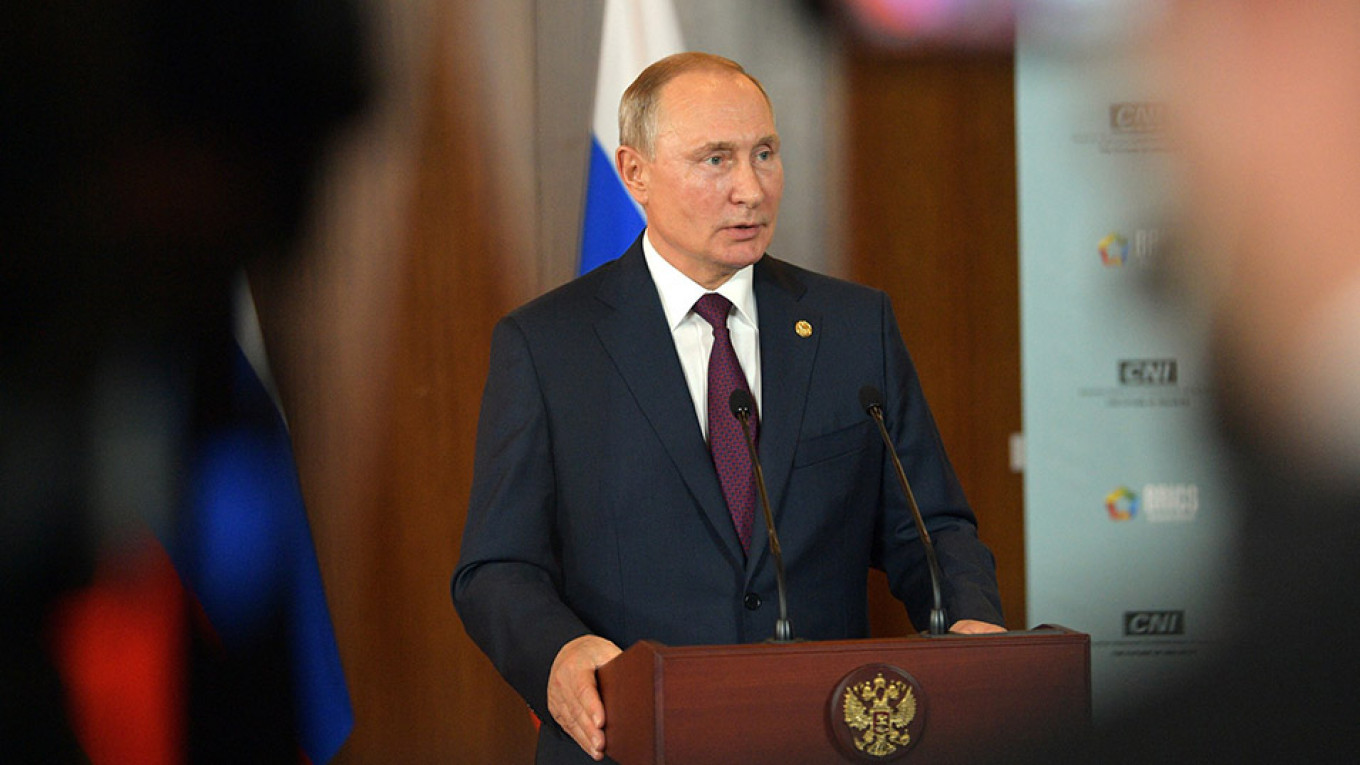
President Vladimir Putin’s favorability has dropped by 10 percentage points since 2017 even though he still enjoys high job approval numbers among Russians, according to an independent Levada Center pollster survey published Monday.
Putin’s approval rating reached an all-time high of 87% in 2014, after Russia annexed Crimea from Ukraine. It began falling throughout 2018 and hit its lowest mark since 2013 last fall, after Putin enacted controversial pension reforms.
According to Levada’s results, 32% of Russian respondents expressed “admiration” and “sympathy” toward Putin, down from 42% two years ago. Meanwhile, 61% said they felt “neutral” and “distant” toward the Russian president, up by 7% since 2017.
“A neutral [and] indifferent attitude, rather than unconditional sympathy, forms the framework of attitudes toward Putin,” Lev Gudkov, the head of Levada, told the Vedomosti business daily Monday.
“In general, all authoritarian regimes are held up on such an alienated attitude,” he added.
He linked Putin’s declining favorability numbers to disappointment with the Russian president’s policies, including the reforms to gradually increase Russians’ retirement ages starting in 2019.
“The accumulated discontent has held for an entire year,” Gudkov was quoted as saying. “It’s all primarily due to economic issues: reduced incomes, lack of prospects, a sense of stagnation in the country.”
Putin’s approval rating, however climbed to 70%, up from 68% over the summer and 67% last year. His disapproval rating stood at 28% in the latest Levada poll, also down from 32% last year.
Levada conducted the survey among 1,616 respondents across Russia on Oct. 24-30.
